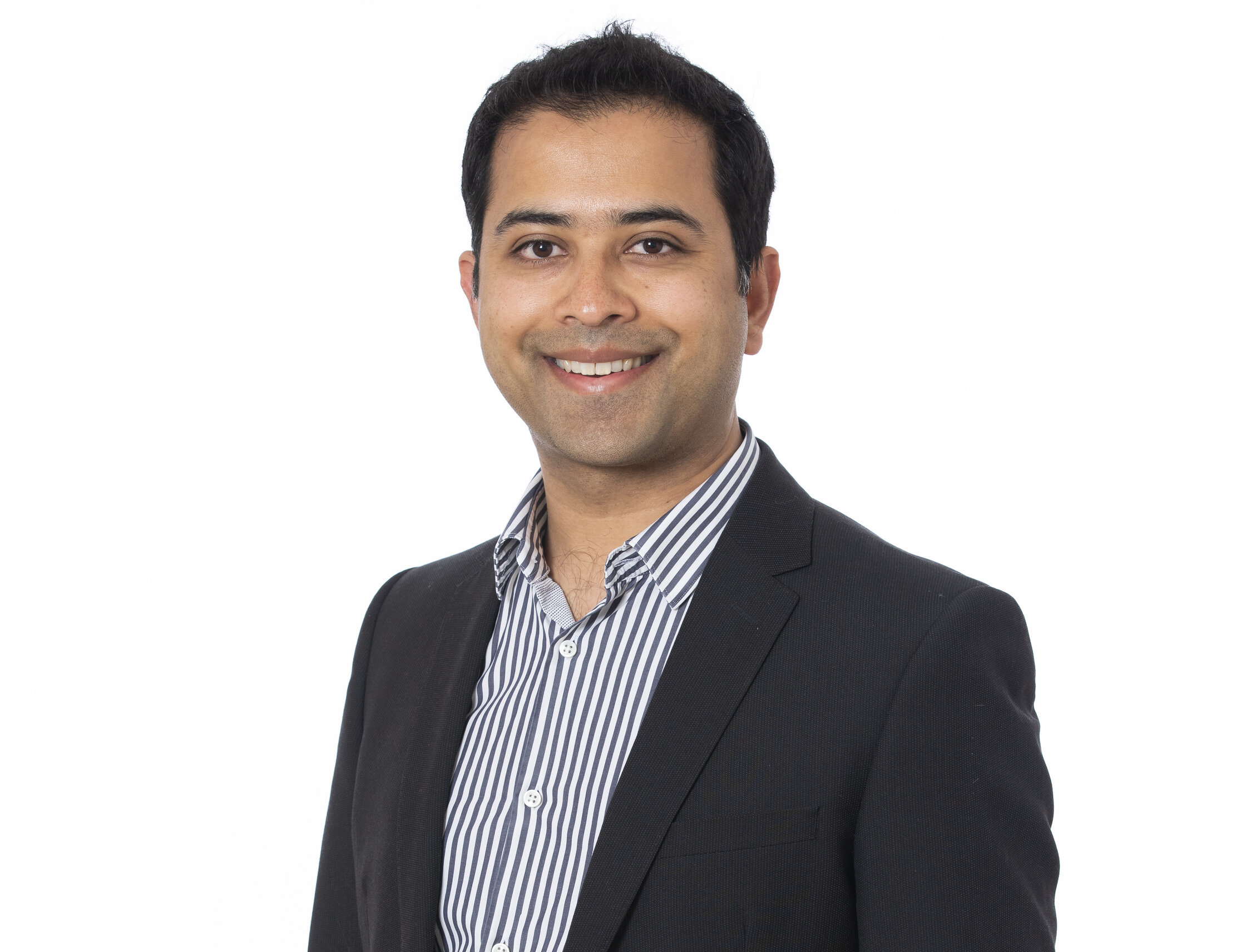Dr Kapil Bhargava
Consultant Dermatologist and Dermatologic Surgeon
Skin Health & Allergy
Sub-specialties: Skin Cancer, Hair Disorders, Cosmetic Dermatology, Adult Dermatology, Mohs Micrographic Surgery, Skin Surgery, Pigmentation Disorders, Scars, Moles, Dermatology, Lesion Removal, Laser Surgery , Muscle relaxing injections, Soft Tissue Fillers, Mole Checks, Alopecia, Facial Rashes.

Overview
Dr Kapil Bhargava is a Consultant Dermatologist and Dermatologic (Mohs) Surgeon, and specialises in skin cancer, hair disorders and cosmetic dermatology. He has received multiple awards for his work in the field and lectured both nationally and internationally.
About Dr Kapil Bhargava
Dr Kapil Bhargava is a Consultant Dermatologist and Dermatologic (Mohs) Surgeon at OneWelbeck Skin Health & Allergy, who specialises in skin cancer, hair disorders and cosmetic dermatology.
He practices at two leading and internationally renowned London teaching hospitals: The Royal London Hospital and at St John’s Institute of Dermatology, based at Guy’s and St Thomas. At the Royal London he is the Lead for Skin Cancer and Dermatologic Surgery and at St John’s sees patients with complex hair and scalp disorders referred by other dermatologists from the UK regions.
Dr Bhargava has received multiple awards for his work in the field and lectured both nationally and internationally. Additionally, he has authored scientific papers in peer reviewed journals and book chapters, including the Hair and Scalp chapter in the popular ‘ABC in Dermatology’ series.
Dr Kapil Bhargava trained in Dermatology at St John’s Institute of Dermatology in all aspects of general and specialist Dermatology and was awarded CCT (Dermatology) by the General Medical Council.
He is on the GMC Specialist Register for Dermatology and has completed a prestigious Joint Royal Colleges of Physicians Training Board (JRCPTB) approved post-CCT Fellowship in Mohs and Advanced Dermatologic Surgery. Additionally, he has taken other training in both Europe and the US and continues to update his knowledge and skills to remain at the forefront of his speciality.
Dr Kapil Bhargava has received a manifold of awards for his work in the field including:
- Michael Hornstein Memorial Scholarship from European Academy of Dermatology and Venereology (EADV)
- British Skin Foundation Grant Award
- British Association of Dermatologists (BAD)/Dowling Club Travel Fellowship
- University College London MBBS Merit Award
- Amulree Bursary
- British Medical and Dental Students Trust Elective Award
Areas of Expertise
Dr Kapil Bhargava performs a range of treatments including:
- Mohs Micrographic Surgery
- Skin Surgery (removal of benign and malignant lesions)
- Cosmetic lesion removal
- Laser surgery
- Muscle relaxing injections
- Soft tissue fillers
Some of the conditions he commonly treats are:
Additional Information
Qualifications
- BSc
- MBBS
- FRCP (UK)
- FRCP (Dermatology)
- Mohs, Advanced Surgery and Laser Fellowship
Memberships
- Fellow of Royal College of Physicians (UK)
- Fellow of Royal Society of Medicine
- British Association of Dermatologists
- British Society of Dermatologic Surgery
- British Hair and Nail Group
- European Academy of Dermatology and Venereology
- European Society for Cosmetic and Aesthetic Dermatology
- International Dermoscopy Society
- American Society for Laser Medicine and Surgery
Research Highlights
Dr Kapil Bhargava has authored scientific papers in peer-reviewed journals and contributed to book chapters such as the hair and scalp chapter in the renowned ABC in Dermatology series.
Key Publications
- Bhargava K and Fenton D (2019). Hair and Scalp. In R. Morris-Jones (Ed.), ABC of Dermatology. 7th Ed. London: BMJ Books
- Genome-wide association study in frontal fibrosing alopecia identifies four susceptibility loci including HLA-B*07:02.Tziotzios C, Petridis C, Dand N, Ainali C, Saklatvala JR, Pullabhatla V, Onoufriadis A, Pramanik R, Baudry D, Lee SH, Wood K, Liu L, Seegobin S, Michelotti GA, Lwin SM, Christou EAA, Curtis CJ, de Rinaldis E, Saxena A, Holmes S, Harries M, Palamaras I, Cunningham F, Parkins G, Kaur M, Farrant P, McDonagh A, Messenger A, Jones J, Jolliffe V, Ali I, Ardern-Jones M, Mitchell C, Burrows N, Atkar R, Banfield C, Alexandroff A, Champagne C, Cooper HL, Vañó-Galván S, Molina-Ruiz AM, Perez NO, Patel GK, Macbeth A, Page M, Bryden A, Mowbray M, Wahie S, Armstrong K, Cooke N, Goodfield M, Man I, de Berker D, Dunnill G, Takwale A, Rao A, Siah TW, Sinclair R, Wade MS, Dlova NC, Setterfield J, Lewis F, Bhargava K, Kirkpatrick N, Estivill X, Stefanato CM, Flohr C, Spector T, Watt FM, Smith CH, Barker JN, Fenton DA, Simpson MA, McGrath JA. Nature Commun. 2019 Mar 8;10(1):1150.
- Lichen planus and lichenoid dermatoses: Conventional and emerging therapeutic strategies. Tziotzios C, Brier T, Lee JYW, Saito R, Hsu CK, Bhargava K, Stefanato CM, Fenton DA, McGrath JA. J Am Acad Dermatol. 2018 Nov;79(5):807-818.
- Lichen planus and lichenoid dermatoses: Clinical overview and molecular basis. Tziotzios C, Lee JYW, Brier T, Saito R, Hsu CK, Bhargava K, Stefanato CM, Fenton DA, McGrath JA. J Am Acad Dermatol. 2018 Nov;79(5):789-804.
- Tissue and Circulating MicroRNA Co-expression Analysis Shows Potential Involvement of miRNAs in the Pathobiology of Frontal Fibrosing Alopecia. Tziotzios C, Ainali C, Holmes S, Cunningham F, Lwin SM, Palamaras I, Bhargava K, Rymer J, Stefanato CM, Kirkpatrick N, Vano-Galvan S, Petridis C, Fenton DA, Simpson MA, Onoufriadis A, McGrath JA. J Invest Dermatol. 2017 Nov;137(11):2440-2443
- Frontal fibrosing alopecia: there is no statistically significant association with leave-on facial skin care products and sunscreens. Seegobin SD, Tziotzios C, Stefanato CM, Bhargava K, Fenton DA, McGrath JA. Br J Dermatol. 2016 Dec;175(6):1407-1408
Major insurers served
If your insurer is not listed, please contact us to confirm your coverage. Please note this does not guarantee coverage or fee assurance. Patients should confirm with their insurer to ensure coverage, check if the doctor is fee-assured, or verify if their policy includes the doctor in question.







